Royal Adelaide Hospital knew its stroke service was ‘indefensible’ time bomb but failed to address it before two patients died
EXCLUSIVE: SA Health officials knew its stroke service at the Royal Adelaide Hospital was an “indefensible” time bomb but failed to address it before two patients died, internal documents show.
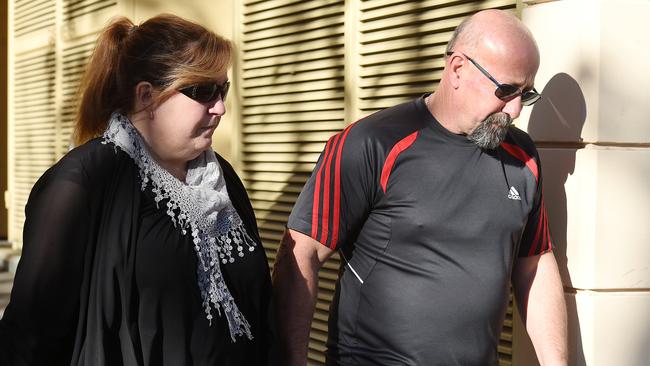
SA News
Don't miss out on the headlines from SA News. Followed categories will be added to My News.
- Two dead in RAH stroke scandal — how The Advertiser broke the story
- Coroner Mark Johns blasts SA Health over stroke scandal
- Stroke scandal — The Advertiser reveals patients' families not told of roster fiasco
SA HEALTH officials knew its stroke service at the Royal Adelaide Hospital was an “indefensible” time bomb but failed to address it before two patients died, damning internal documents show.
The Advertiser can reveal that an email trail shows officials had admitted that the hospital’s roster — which had just two specialists to supposedly offer 24/7 complex stroke care — “puts SA Health at extreme medico-legal risk and would be indefensible in the media”.
Two patients died in April at the RAH after suffering strokes, while the hospital’s only two specialists accredited to perform a procedure to suction a blood clot from the brain were both on holidays.
Documents prepared for the coroner’s inquest into the two deaths, seen by The Advertiser, reveal:
OFFICIALS knew the rostering system contravened the industrial award and was contrary to a recommendation in a major review of services.
THEY were aware there was no contingency plan if one specialist fell ill while the other was on leave.
THEY privately conceded the roster of just two staff for a 24/7 service had been “severely stretched” for more than two years and that extra appointments were “a matter of urgency”.
SUPERVISORS were aware both specialists would be away at the same time in April — a meeting was held with them to discuss it — but no contingency plan was put in place.
SA HEALTH was rebuked for claiming in the media that local graduates were about to increase numbers on the roster, when in fact no one is in training.
THE two specialists, interventional neuro-radiologists Dr James Taylor and Dr Rebecca Scroop, allegedly were “routinely” rostered off on Thursdays and often also on Wednesdays, despite the RAH supposedly being the state’s 24/7 stroke centre of excellence.
DR Scroop sent an email revealing her anguish at the deaths, while noting it underlines the pressure of having just two specialists for the service.
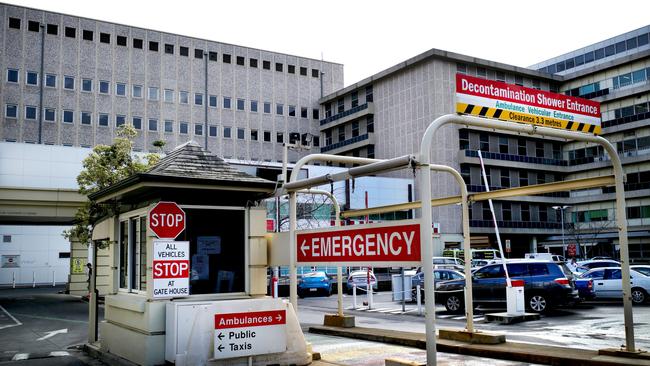
Michael John Russell, 60, of Norwood, and Leslie Robert Graham, 87, of Vale Park, died after being admitted on April 18, when both specialists were on holiday — Dr Scroop overseas and Dr Taylor on a property outside Victor Harbor.
In each case, the only other specialist in the state accredited to do the delicate procedure of suctioning a blood clot from the brain, Dr Steve Chryssidis, agreed to come in from his private practice and perform the procedure despite not being credentialed to work at the RAH.
Each time, this resulted in a delay of about two hours between the stroke being diagnosed and the procedure being performed.
Mr Russell’s death was referred to the coroner but with no mention that there had been no specialist rostered on to do the procedure.
Mr Graham’s case was only referred after Coroner Mark Johns read about the deaths in The Advertiser on May 13 and demanded details.
The subsequent report of Mr Graham’s death, signed by Dr Janakan Ravindran on May 16, notes there was a delay in organising clot removal “due to unavailability of appropriate staff”.
“We asked another radiologist to come into the RAH to perform the procedure. The procedure commenced at 11.50am (one hour, 50 minutes post admission),” it states.
“Unfortunately the procedure to remove the clot was unsuccessful.”
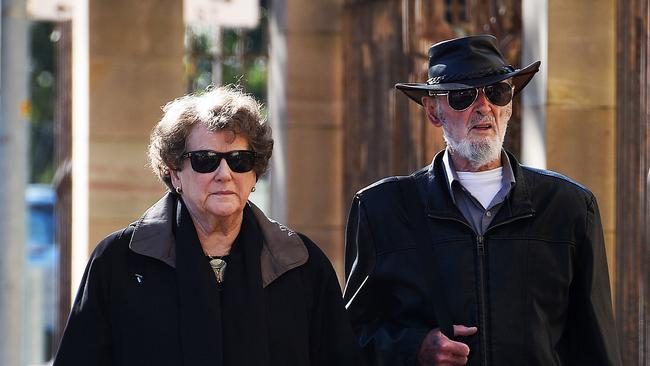
SA HEALTH REBUKED
Mr Johns released a scathing public statement critical of SA Health over its handling of the two deaths, noting that the delays and lack of information meant autopsies were not possible.
“There was nothing about the report which would have alerted the coroner to the possibility that the unavailability of neuro-interventionist radiologists was a possible matter of concern in the circumstances of the patient’s death,” his statement said of Mr Russell’s death.
After revelations of the scandal by The Advertiser, SA Health spoke to media outlets, reassuring the public that “we’re training interventional radiologists (IRs) right now so we should have a couple that will be graduating soon which will increase the number”.
However, a letter to SA Health from the Radiology Training Network’s director, radiologist Dr Meredith Thomas, says there are no trainees and funding for training had been withdrawn years earlier.
“SA Medical Imaging is not training IRs and we certainly do not have a couple graduating soon,” Dr Thomas wrote.
“With respect to interventional neuroradiology services at the RAH, it was inevitable that as demand increased, the system would fail unless additional resources were allocated. Those who have been impacted by recent events deserve open disclosure of those events.”
Dr Thomas said that SA Health’s spokesperson may have been misinformed by their advisers.
While SA Health has endeavoured to suggest that the delays in treatment had no effect on the outcomes, one of the specialists involved wrote of her feelings of anguish.
Dr Scroop wrote to senior staff saying: “I feel terrible that there has been a patient morbidity as a consequence of my leave but this has unfortunately pointed out that we have been stretched for some time”.
New protocols are now in place where the two specialists have to sign off on each other’s leave, with radiology department head Dr Jim Buckley noting: “We just can’t be too careful”.
Both had planned to be off again at the same time late last month but Dr Taylor postponed his leave.
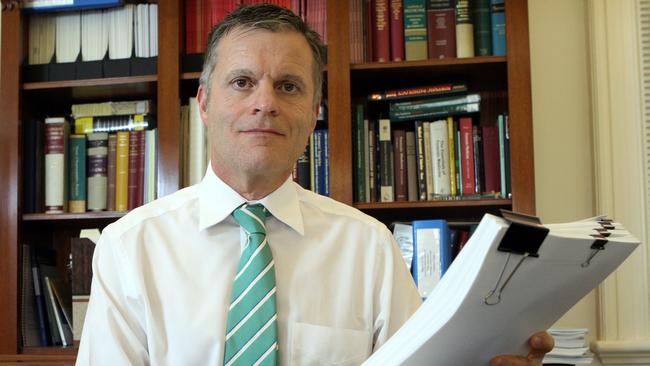
ROSTER STRETCHED
HEAD of the RAH Stroke Unit, Associate Professor Tim Kleinig, wrote to colleagues immediately following the two emergencies, warning of the medico-legal risks of the rostering system and stating “someone else needs to be appointed to the roster as a matter of urgency”.
“The establishment of a sustainable roster is a matter of extreme urgency,” he wrote.
“The events of this week have been quite traumatic for all involved and more importantly, patient outcomes so far have been less than ideal.”
He noted the current situation of just two specialists for a 24/7 service is contrary to a major review’s recommendations, contrary to the relevant industrial award and has no contingency if one specialist falls ill while the other is on leave. “It puts SA Health at extreme medico-legal risk and would be indefensible in the media,” he wrote.
Central Adelaide Local Health Network head of neurology Dr Jim Jannes replied, noting the demand for such services is expected to increase dramatically and urging: “Let’s use events of this week to enforce change”. CALHN acting clinical lead Dr Jim Slavotinek wrote: “The INR on-call roster has been severely stretched for the last two years or so”.
Acting head of the Department of Radiology Dr Jim Buckley sent an email on May 1 requesting “as a matter of urgency” an advertising campaign for a suitably qualified INR consultant.
“The recent difficult events have underlined what we already knew — there is an urgent need to strengthen the intervention neuroradiology roster at the RAH,” Dr Buckley wrote.
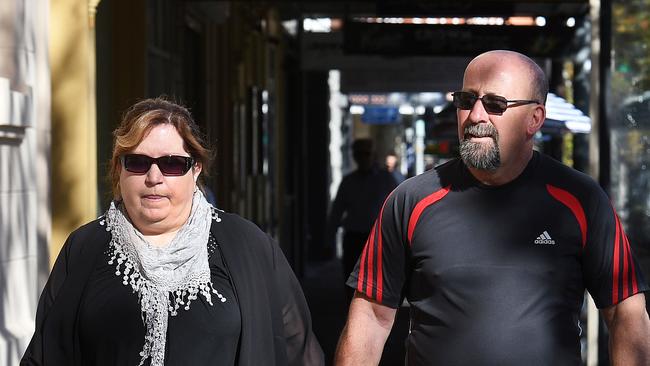
ROSTER ‘SCANDALOUS’
A LEGAL letter from lawyers Moloney & Partners to SA Medical Imaging on behalf of a doctor involved in an unrelated issue, dated May 16, states: “It routinely occurs that neither Dr Taylor or Dr Scroop are rostered on Thursdays, and often also on Wednesday.
“Our client considers that this is a serious patient service/treatment issue which you should intervene to address as a matter of urgency.
“Our client points out this situation has been extant for some time and in future, under Transforming Health, the RAH is the stroke referral hospital for the state.
“So far as our client is concerned, it is scandalous that the rostering is arranged with the result that neurointerventionists are routinely not on the roster for Thursdays and also often Wednesdays.”
MINISTER’S BRIEFING
DESPITE senior officials privately agreeing about urgent problems with having just two specialists at the RAH for clot suction removal, SA Health briefing notes sent to Health Minister Jack Snelling to defend the situation in Parliament advised him to say: “There continues to be interventional neuroradiology cover at the RAH 24/7”.
Under Transforming Health’s consolidation of services, all stroke cases requiring the complicated suction clot removal from the brain are taken to the RAH.
A similar service used to be available at the Queen Elizabeth Hospital.
A successful clot retrieval on a Scottish tourist reported by the Sunday Mail in 2009 was later reported in Scotland, praising the hospital and staff.
The inquest into the two deaths will resume next week.



